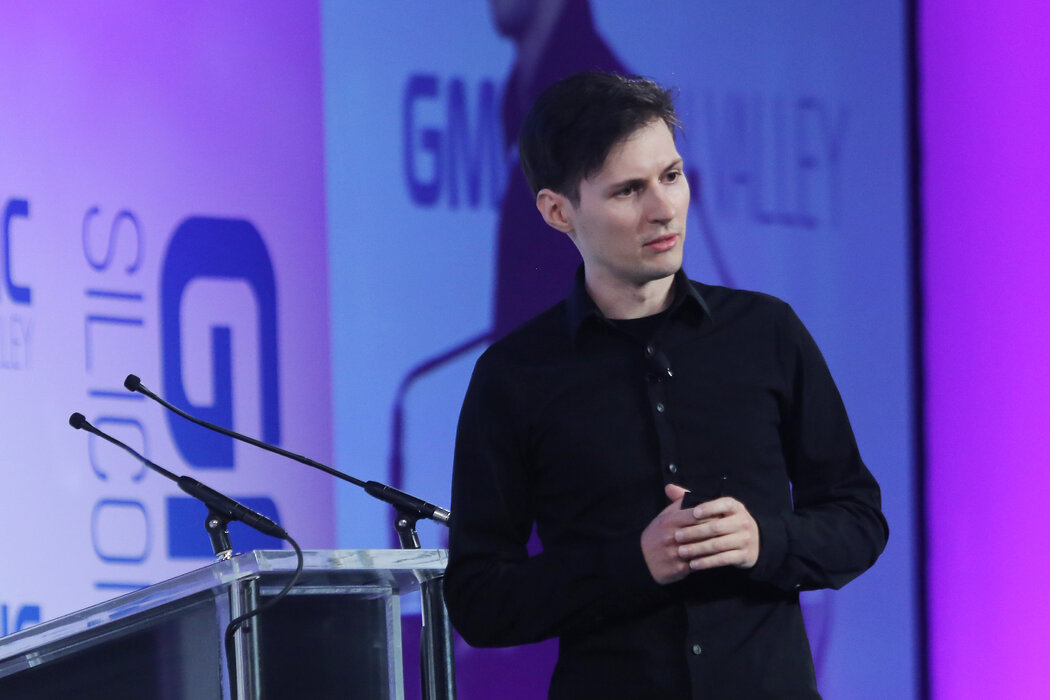週六,Telegram 創始人兼執行長 Pavel Durov 在法國被捕,引起網際網路言論自由爭議。Durov 被指控在 Telegram 上傳播非法內容。Telegram 是全球最大的通訊軟體之一,因其對言論的自由管制少而受到歡迎。一些人認為此逮捕是打壓網際網路言論自由的行為,而有些人則認為 Telegram 應該對平台上的非法內容負責。這次事件引發了全球關於網路言論自由、審查制度和政府對網路內容的監督等問題的關注。
Original Title: Telegram創始人在法國被捕,引發互聯網言論自由之爭
Summary: Telegram, founded in 2013 by Russian entrepreneur Pavel Durov, has become one of the world’s largest online messaging services and plays a significant role in daily life in countries like Russia, Ukraine and India, where people use it to send messages, access independent news and exchange views.
The company, with over 900 million users, has grown in part on the promise of free speech. Telegram has fewer rules about what people can say or do on its platform, which has helped people living under authoritarian governments communicate and organize. But this has also made the app a haven for misinformation, far-right extremism and other harmful content.
Many were shocked by reports in French news media on Saturday that Mr. Durov had been arrested in France on suspicion of distributing illegal materials on the service. A French judicial official, who spoke on the condition of anonymity, confirmed on Sunday evening that Mr. Durov was being held by the police. News of his detention over the weekend spread online, becoming a flashpoint in a continuing debate about free speech on the internet.
Elon Musk, the owner of X, formerly known as Twitter, called for “#FreePavel” on his X account. “Europe, 2030: you get executed for liking a meme,” he also wrote. X, like Telegram, has embraced a hands-off approach to content moderation.
Leonid Volkov, a former top aide to Russian opposition leader Alexei Navalny, who died in prison last year, wrote on Telegram that Mr. Durov should be released, even though the platform has been a useful tool for criminals. “Durov is not an ‘accomplice’ to the crimes committed by Telegram users,” he said.
The reaction to the arrest underscores the rising global concern about free speech, censorship and government oversight of online content as regulators around the world, especially in the European Union, have ramped up pressure on companies to address issues like misinformation, online extremism, child safety and the spread of illegal materials.
Telegram has long been in the crosshairs of law enforcement agencies around the world, as it has been used by terrorist groups, drug dealers, arms traffickers and far-right extremist organizations to communicate, recruit and organize.
According to French news reports, Mr. Durov, 39, was arrested after arriving at Bourget Airport, near Paris, from Azerbaijan on a private jet. French judicial officials said late Sunday that his detention had been extended. French law allows the initial 24-hour detention period to be extended to 96 hours depending on the seriousness of the criminal charges.
Representatives for the French police and the interior ministry declined to comment.
In a statement on Sunday, Telegram said “Telegram complies with E.U. laws,” and that “Pavel Durov, Telegram’s CEO, has nothing to hide.”
“This is a brutal attack on free speech all over the world,” wrote George Lobushkin, Mr. Durov’s former press secretary, who is close to him, in an interview on Telegram.
Mr. Durov’s arrest could exacerbate tensions with Russia. The Russian Embassy in France said in a statement on Sunday that it had asked French authorities for clarification on the arrest.
Vladislav Davankov, a deputy speaker of the lower house of the Russian Parliament, the State Duma, called for Mr. Durov’s release. He said the arrest was likely an attempt to get information that Telegram holds, according to Meduza, an independent Russian news outlet. “This is not permissible,” he said.
Unlike executives at other big online platforms — like Elon Musk of X, Mark Zuckerberg of Meta, Shou Zi Chew of TikTok and Sundar Pichai of Google — Mr. Durov, whose net worth is estimated at more than $9 billion by Bloomberg, has largely been out of the public spotlight.
An arrest like this has few precedents. European Union and U.S. governments have subpoenaed and questioned leaders of other social media companies, but arrests of big tech executives for what happens on their sites are rare. In 2016, Brazilian authorities arrested a Facebook executive after the company refused to turn over information from WhatsApp in a drug trafficking investigation.
A particular area of interest after Mr. Durov’s detention in France is likely to be what information Telegram decides to share or keep private. French authorities could try to compel Telegram to share information about criminal channels, such as those that are used to sell guns or coordinate terrorist attacks. This could test Telegram’s stringent promises of privacy protection for its users.
Mr. Durov, a Russian citizen, left Russia in 2014 after losing control of Vkontakte, a Facebook competitor in Russia. He founded Telegram in 2013 and promoted it as a censorship-free way to communicate privately. The company is now headquartered in Dubai, in the United Arab Emirates, according to Telegram, and Mr. Durov holds French and Emirati citizenship.
Like iMessage or WhatsApp, Telegram is a standard messaging app, but it also offers channels and groups where large numbers of users can share views and communicate.
Part of Telegram’s appeal is that it allows for huge chat groups with up to 200,000 people, at a time when other social media platforms like WhatsApp were taking steps to limit group sizes to combat misinformation. Other features, like sharing large files, unlimited sharing of links and bots that allow for interaction within channels, make Telegram a powerful tool for organizing and coordinating.
These features, coupled with the app’s minimal moderation, have made it a haven for individuals and groups who have been banned from other platforms like Twitter and Facebook.
Telegram generates revenue through in-app purchases, advertising, subscriptions and other promotional activities. In March, Mr. Durov told the Financial Times that Telegram was close to profitability and was considering an initial public offering.
Reports of Mr. Durov’s arrest were met with immediate criticism from devoted users of the service, who see it as an example of government attempts to censor free speech on the internet. Mr. Durov typically keeps a low profile and does not do many media interviews. He posts about a variety of topics on his personal Telegram channel, including his spartan lifestyle, the countries he has visited and his more than 100 biological children as a sperm donor. He occasionally posts shirtless photos of himself on Instagram.
While Mr. Durov casts himself as a free speech champion, many security experts say that Telegram is not adequately encrypted. Misinformation analysts also say the app does not do enough to moderate its content and has become a major conduit for the spread of terrorist propaganda and far-right extremism.
Mr. Durov has said Telegram was created after a confrontation with Russian security services. He said Russian security officials broke into his apartment and tried to force him to delete political material from Vkontakte that was critical of the government. He recently scrapped plans to launch a cryptocurrency through Telegram after being scrutinized by the Securities and Exchange Commission.
After leaving Russia in 2014, Mr. Durov said he had spent time in Berlin, San Francisco, London, Singapore and other cities before settling on Dubai as Telegram’s headquarters. Russia had tried to ban Telegram, but the company’s troubles seemed to ease in 2020 after one of its executives attended a tech panel alongside Russia’s prime minister.
Tucker Carlson, the right-wing talk show host who interviewed Mr. Durov this year, said news of his arrest was “a living warning to anyone who owns a platform that refuses to censor the truth at the behest of governments and intelligence agencies.”
Original article: https://cn.nytimes.com/technology/20240826/pavel-durov-telegram-detained-france/zh-hant/?utm_source=RSS

